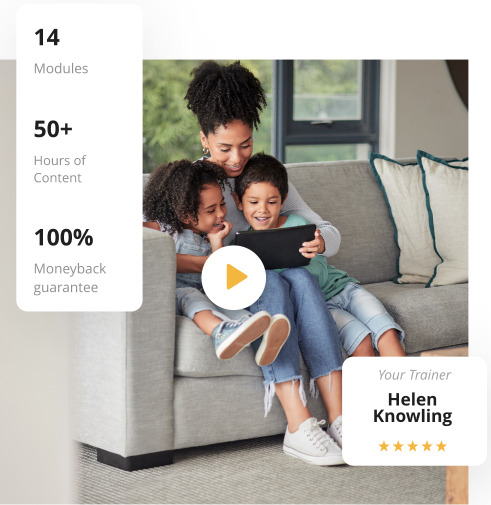
Fostering Professionals:
Are you supporting carers that are stressed and struggling to sustain difficult placements?
Do you have carers that:
Don't always understand children's behaviours?
Hold traditional views about sanctions & punishment?
Dear Fostering Professional,
Your foster carer’s decision to become a carer is a remarkable one.
One that their friends, family members, and people they barely know will praise them for.
But those people will never truly understand the challenges that come hand in hand with their selflessness.
Because while they have the unique and rewarding opportunity to make a profound difference in the life of a child who has faced adversity…
They also face the weight of responsibility that comes with creating a loving, supportive, and nurturing environment, for a child who may have experienced trauma, neglect, or abuse.
And at times, many foster carers (regardless of experience), report feeling overwhelmed, underprepared, or uncertain about how to approach certain situations.
A recent report quoted that 1/3 of new carers are leaving fostering after only 1 year!
That’s no surprise, right? When you consider the challenges presented to carers:
The Challenges of Foster Care
Challenge #1. Managing ‘behavioural issues’
Foster children may exhibit a wide range of behaviours as a result of their past experiences. These can include aggression, withdrawal, outbursts of frustration, or self-harming behaviours. Managing these behaviours can be emotionally and physically demanding.
Challenge #2. Understanding the impact of trauma
Many foster children have experienced trauma, and understanding the effects of this on their emotional well-being and behaviour is crucial for providing appropriate care and support.
Challenge #3. Building trust and attachment
Foster children are extremely likely to have unmet attachment needs. Developing trust and building a strong bond can take time, patience, and understanding.
Challenge #4. Navigating complex emotions
Foster children may struggle to express and manage their emotions, which can manifest in behaviours or emotions that carers will find stressful.
Challenge #5. Balancing carers well-being
Although often overlooked, caring for a foster child can be emotionally taxing, and it’s essential to strike a balance between providing care and looking after their own emotional well-being.
What do your carers need to know?
It takes patience, compassion, and resilience to provide the care these children need.
The support for foster carers has come a long way in the last few years – with a growing network of support systems designed to equip them with the knowledge and confidence they need to support the children in their care.
But despite this progress, there’s never been a truly comprehensive guide to show them how to navigate the challenges of fostering…
Until now.
Introducing the ProActive Fostering Course
We’ve distilled years of working closely with foster carers and partnered with leading experts in children’s psychology to meticulously design a step-by-step programme to equip your carers with the skills, knowledge, and insights they need to effectively navigate foster children’s unique challenges while fostering a secure and nurturing environment for them to thrive.
By enrolling in the ProActive Fostering Course, your carers will:
#1
Gain a comprehensive understanding of the impact of trauma on children’s behaviour, emotions, and development, and learn how to respond with empathy, patience, and compassion. By understanding the root causes of their foster child’s behaviour, they can tailor their approach and offer targeted support.
#2
Discover evidence-based techniques and strategies to help foster children build self-esteem, resilience, emotional intelligence, and healthy coping mechanisms. Our course will teach your carers practical methods for helping foster children develop the emotional skills they need to navigate life’s challenges with confidence.
#3
Master the art of setting appropriate boundaries, creating a safe and predictable environment, and establishing routines that promote stability, trust, and a sense of belonging. Consistency and structure are essential for helping foster children feel secure and supported.
#4
Uncover the power of compassionate communication to connect with foster children on a deeper level using PACE, diffuse challenging situations, and encourage open dialogue and emotional expression. Effective communication is key to building trust and understanding a foster child’s needs and emotions.
#5
Learn self-care strategies and stress management techniques to help them maintain their own well-being while caring for foster children. Our course emphasises the importance of looking after themselves so they can provide the best care possible.
#6
Join a supportive community of fellow foster carers, sharing experiences, and insights, and learning from one another. Your carers will gain access to expert advice and guidance from experienced professionals in the field of foster care.
What’s Included?
Our comprehensive and in-depth course includes:

14 modules of interactive online lessons, featuring engaging video lectures, enlightening case studies, quizzes, and hands-on exercises designed to reinforce your learning. In each module, you’ll explore a new topic, building on your knowledge and skills to become a more effective and compassionate foster carer.
More information below

Monthly live Q&A sessions with our team of experienced foster care professionals, child psychologists, and therapists, offering personalised support and advice. These sessions provide an opportunity to ask questions, seek clarification, and gain insights from experts in the field.
.
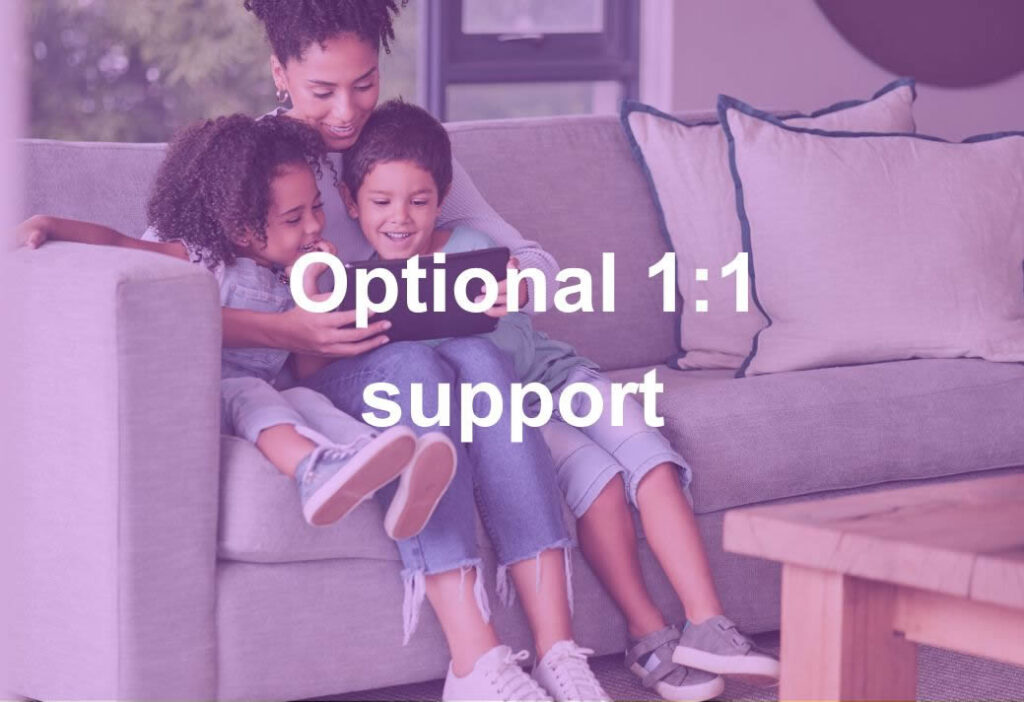
Optional 1:1 support, designed to provide personal support with the techniques and strategies you’ve learned throughout the course. Direct 1:1 support via Zoom from our team of professionals.

Lifetime access to course materials, updates, and resources, so you can revisit and refresh your knowledge whenever you need to, ensuring ongoing growth and development. As your foster care journey progresses, you’ll have access to the latest research and strategies to support your growth as a carer.
Course Modules
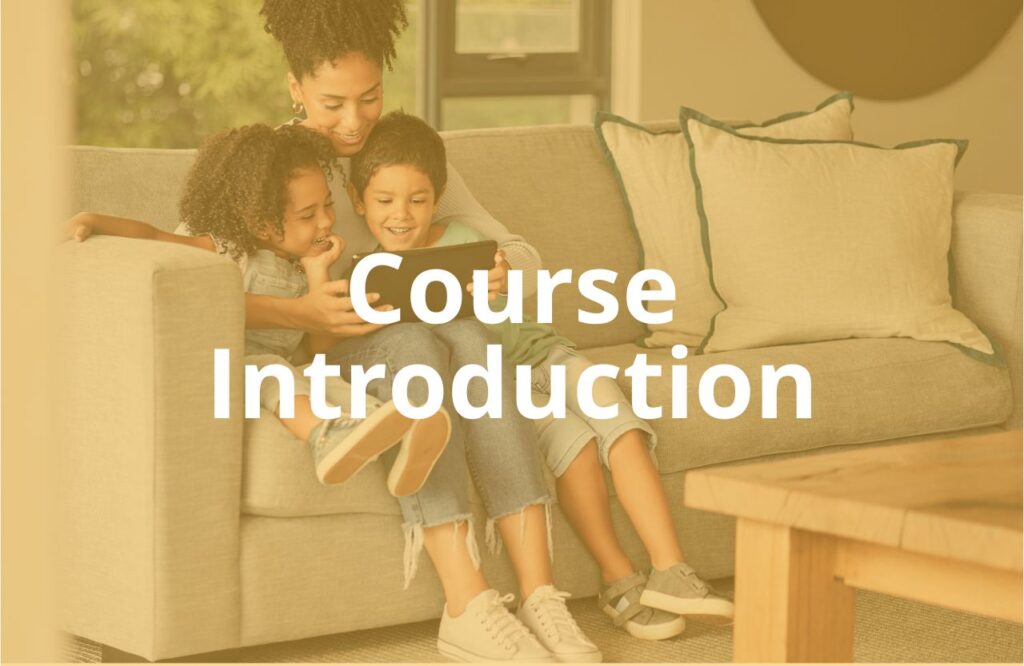
Course Introduction
In this introduction module, we’ll chart your journey of knowledge and empowerment. Gain a comprehensive overview of the course and discover the essential skills and resources you need to provide the type of environment your foster children need in order to thrive.

Therapeutic Parenting
Unlock the power of therapeutic parenting, learn evidence-based strategies, practical techniques, and nurturing approaches so that you can create a sense of calm and belonging in the parent-child relationship.
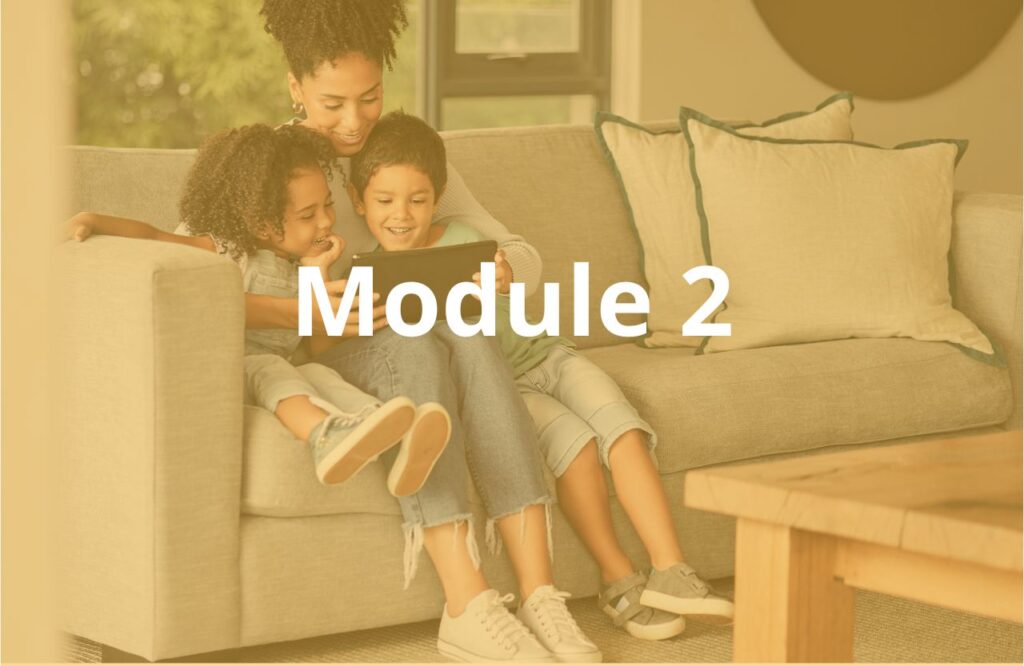
Understanding Behaviour
Comprehensive module that delves into the underlying factors that drive behaviour, equipping you with effective tools and insights that will empower you to create positive transformations in your foster children’s lives.

Understanding The Neuroscience
In this module, dive deep into the inner workings of the brain, unravel the connections between brain development and behaviour, and discover powerful strategies to support positive outcomes for the children in your care.
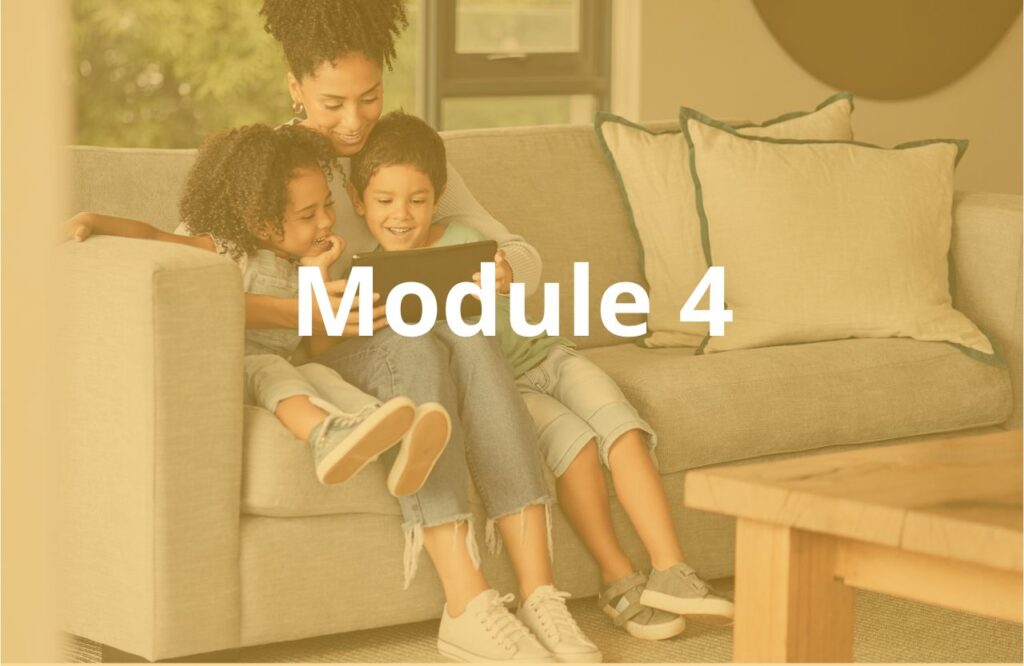
Child Development – Using a Lived Experience Lens
In this transformative module, delve into the stages of physical, cognitive, and socio-emotional growth. Gain practical insights, evidence-based knowledge, and effective techniques to support each child’s unique developmental journey

Applying Attachment Theory To Fostering
Discover the profound impact of unmet attachment needs on a child’s emotional wellbeing. Gain practical strategies, explore the importance of bonding and how to create a secure attachment with your foster children, even if up until now they have pushed you away.
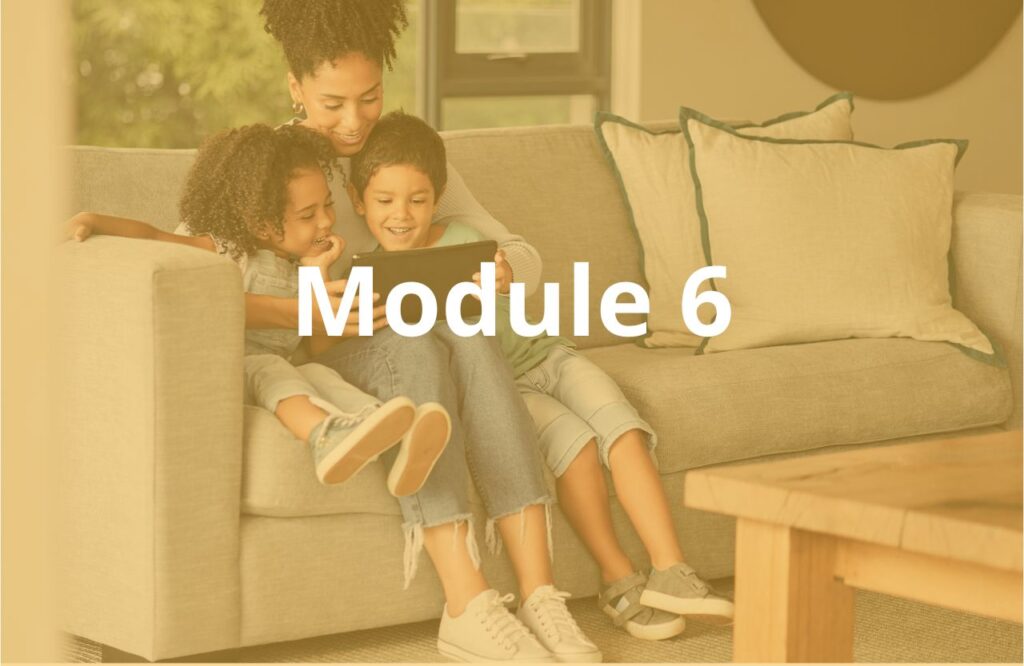
Childhood Trauma (Understanding Lived Experiences)
Empower children to heal from childhood trauma. This module equips you with trauma-informed strategies, resilience building techniques, and a deep understanding of the healing process.
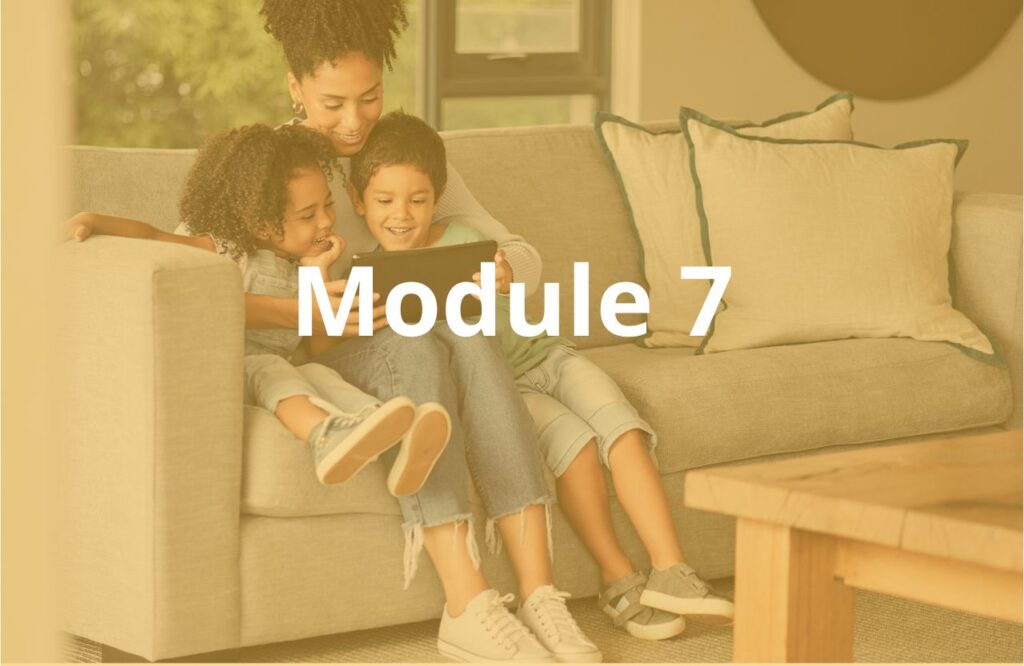
Toxic Shame – The Missing Third Element
This module explores the profound impact of toxic shame on a child’s self-esteem and behaviour. Gain practical tools, compassionate approaches, and evidence-based strategies to help children ovecome shame and build resilience.
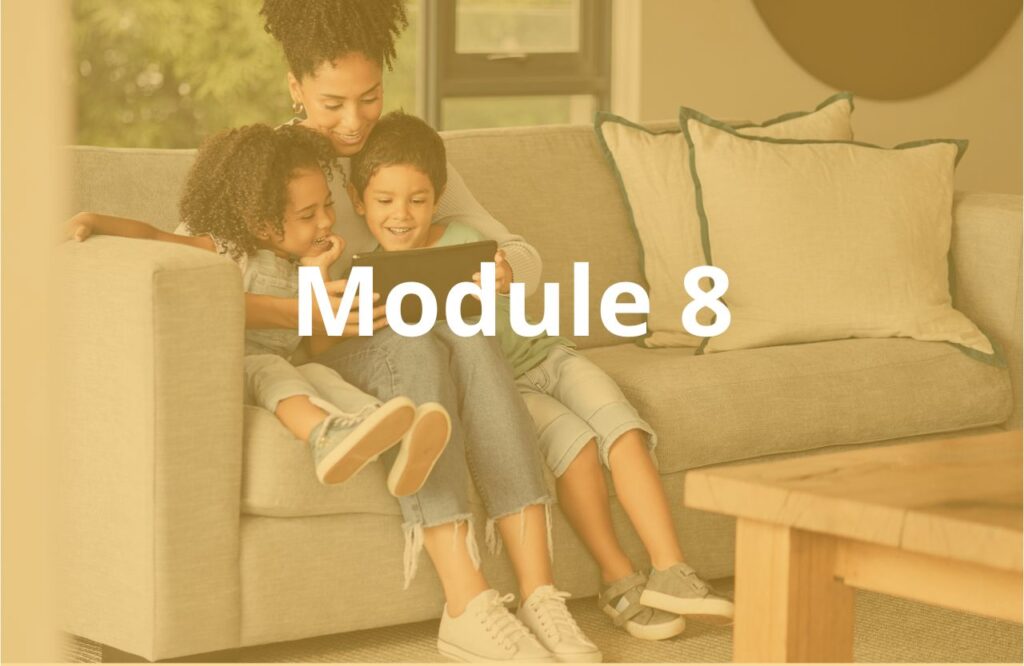
House Model of Parenting – Pulling it all Together
In this module. we unveil a comprehensive framework that integrates therapeutic techniques, trauma-informed approaches, and nurturing strategies that has been developed specifically for foster carers.

PACE & Staying PACEey
This module unravels the principles of Playfulness, Acceptance, Curiosity and Empathy, providing you with practical techniques and scripts to connect deeply with children, build trust and promote healing.
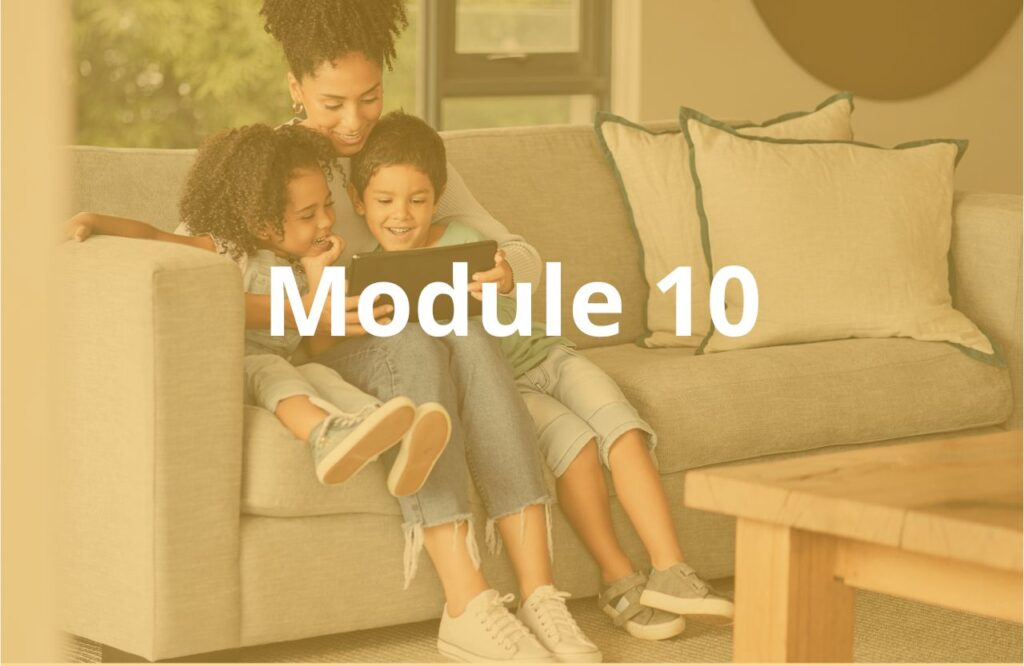
De-escalation Strategies
In this module, learn proven techniques to defuse tense situations, promote emotional regulation, and create a calm and safe environment for the children in your care.
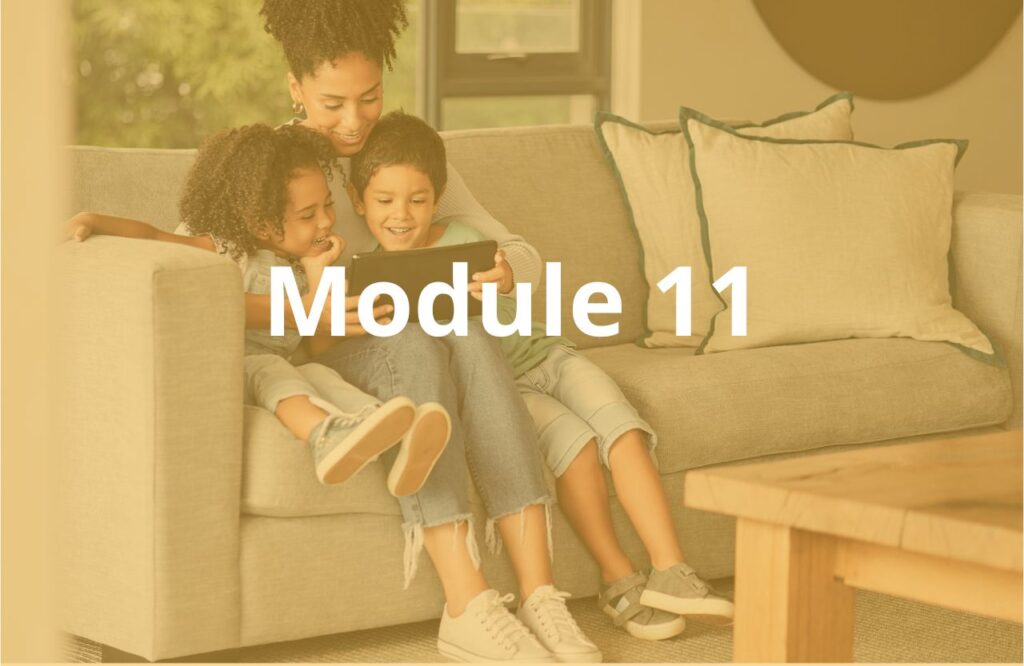
Understanding Recovery (and Resilience)
In this empowering module, explore the factors that contribute to resilience, learn effective strategies to support healing and growth, and discover how to nurture a sense of hope and strength in children overcoming adversity.
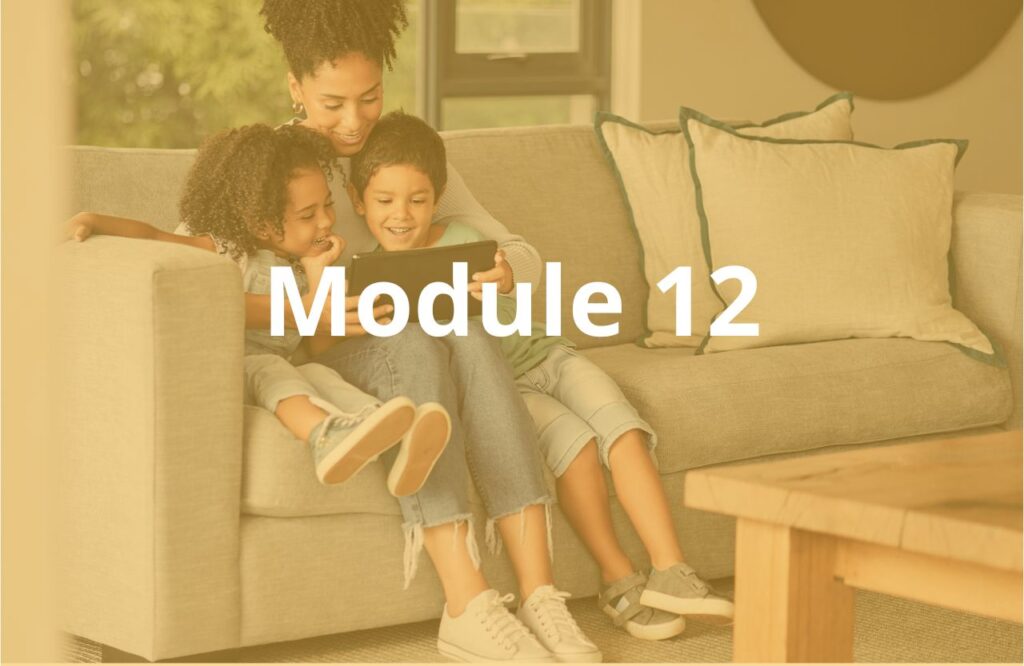
Post Crisis Support & Reattunement
This module offers practical strategies, self-care techniques and resources to help children and yourself navigate the aftermath of challenging situations and explains how to effectively repair ruptures to your relationships.
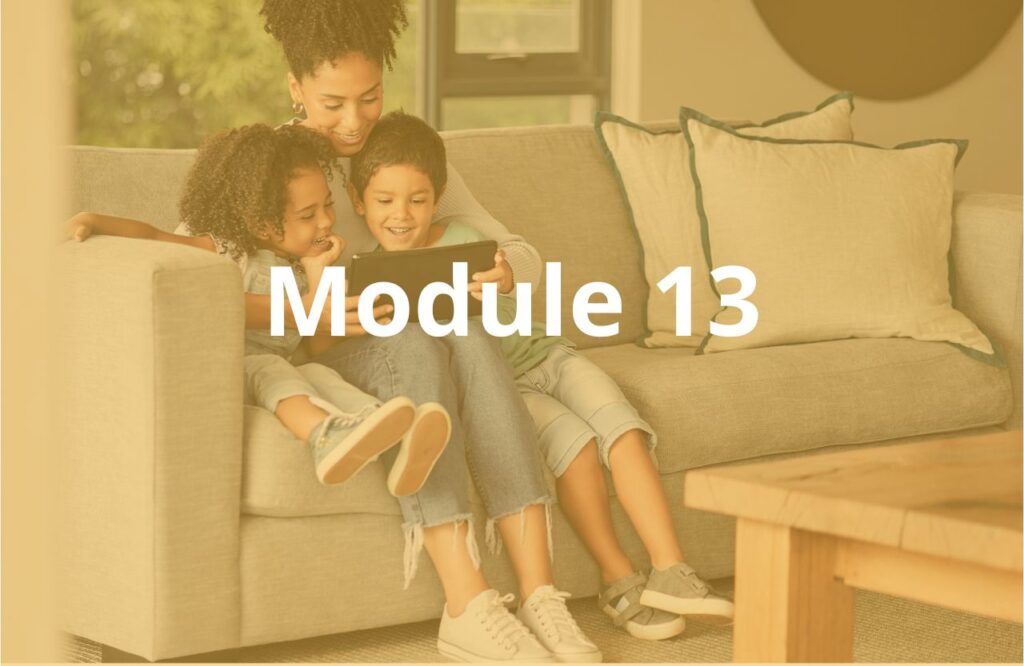
TRUST Method
Therapeutic Re-Parenting Understanding Attachment, Shame & Trauma.
Applying theory and knowledge into a cohesive model for change.
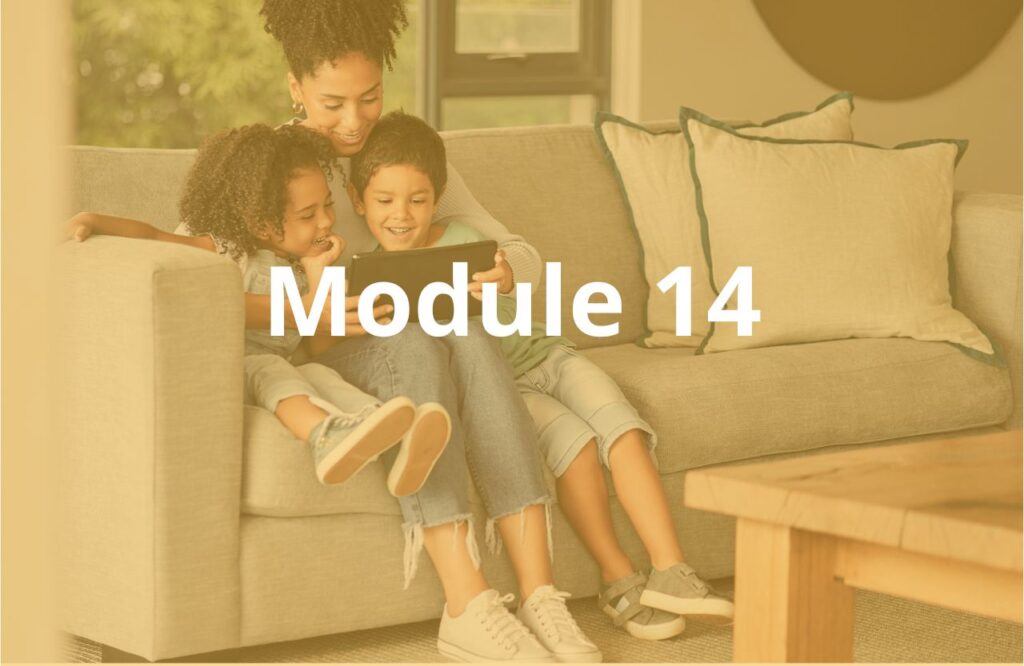
Building Bridges: A Foster Carer’s Guide to Working Successfully with Schools
In this module, explore effective strategies to build strong partnerships with school, enhance communication, and promote educational success for your foster children.
Questions? Get Answers...
Even when your carers are equipped with the knowledge and tools needed to handle challenging situations as a foster carer, it’s natural to have doubts.
“Am I doing the right thing?”
“…could I have dealt with that situation better?”
“Is it just me finding this aspect difficult?”
That’s why the ProActive Fostering Course goes far beyond providing them with the practical information and know-how they need to provide the best possible care.
Because when you sign up, they’ll also receive exclusive access to our live monthly Q&A calls.
Each month, they’ll be invited to join us live on Zoom and provided the opportunity to ask any questions they might have about their foster journey – for life.
Whatever the topic or concern, our expert team will be on hand to provide answers from their experience, training and psychology.
And even if they don’t have any questions, they’re still welcome to join the call and benefit from the questions other foster carers are asking.

Carer Success Stories
Discover the most transformational course for Foster Carers.
But don’t just take our word for it – hear from some of the inspiring foster carers who have already transformed their lives and the lives of their foster children through our course:
Provided me with some Eureka moments!
“It really is an excellent catch-all course that brings together a lot of what we have learned & re-frames it. It should be part of our compliance to do this course yearly.
Elaine Rees – Foster Carer
Made understanding the course easy
“Very informative… lots related to our situation as new carers.
We thought Helen was fantastic and really made understanding the course easy, great use of videos, really helpful and enjoyed it.”
Agarwal Family – Foster Carers
Enabled us to understand
“The course enabled us to understand reasons for a child’s responses – see things through the trauma / sensory / therapeutic lens which allows us to respond in a way the children will be able to manage – It takes time, keep going.”
Foster Carer
Honestly loved this
“I normally really struggle with training as I can’t focus on things when sat still but honestly loved this, I think this is because of both interesting content and delivery with a fab mix of resources, activities, facts and examples.”
Sandie Fernsby – Foster Carer
Enabled us to understand
“The course enabled us to understand reasons for a child’s responses – see things through the trauma / sensory / therapeutic lens which allows us to respond in a way the children will be able to manage – It takes time, keep going.”
Jane Langley – Foster Carer
Very engaging
“…I found the course to be invaluable. Helen was very knowledgeable as a trainer and very engaging.”
Foster Carer
Can’t Recommend It Enough
“Helen is a great trainer. She explained everything well and simplified it, so easier to grasp.
Her energy was also great.”
Foster Carer
Are You Ready To Make A Lasting, Positive Impact On The Lives Of Your Foster Children?
2 - 9 Seats
£147 / Per Household
10 Seats or More
£97 / Per Household
20 Seats or More
£87 / Per Household
Our 100% Money Back Guarantee
We understand that investing in any course can feel daunting, even when it feels like a perfect fit.
That’s why we created our 100% Moneyback Guarantee.
If after reviewing the entire course you decide it’s not exactly what you were hoping for, or it hasn’t lived up to your expectations, we’ll refund 100% of your money – no questions asked.
Meaning getting started with the ProActive Fostering Course is 100% risk-free.

Frequently Asked Questions
Q: Do our carers have a certain time in which they need to complete the course?
A: No! They’ll receive lifetime access to the course, meaning they can complete it in their own time as fast or slow as they like. Plus they’ll always be able to join the monthly Q&A calls to help them when needed.
Q: What’s your refund policy?
A: Our 100% Money Back Guarantee means that as long as you watch all of the course materials, we’ll refund 100% of your money if you’re not completely satisfied with the course and what you’ve learned. No questions, no quibbles.
The best part, you have a FULL 60 days to experience the course and start to apply the learning.
Q: Can Supervising Social Workers or Support Workers take the course as well?
A: For agencies that invest in ten places or more, your support team (Supervising Social Workers & Support Workers) all receive a free place. So for clarity, you receive additional (free) seats for all of your professionals.
Q: How do we access the course materials?
A: Your carers (and the Team) will be sent their login details for the online learning portal straight after purchase, designed to make the process super simple. All they need is a laptop, PC, phone or tablet and an internet connection!
Q: Is this suitable for new Carers?
A: The course has been carefully designed to deliver value to novice and experienced Foster Carers alike. The course will provide new carers with the tools and know-how they’ll need further down the line so that they can start with confidence and avoid the usual pitfalls.
Course Authors

(Child and Adolescent Clinical Psychologist)
Anna is an exceptionally warm, gentle and deeply compassionate Clinical Psychologist who has over fifteen years of experience working with children, young people and families.
She has a considerable portfolio of experience working in NHS Child and Adolescent Mental Health Services (CAMHS), Multidimensional Treatment Foster Care Services (MTFC), Inpatient Adolescent Services as the Clinical Lead in Eating Disorders and Psychosis, and Principal Psychologist in Residential Services for looked after children. In both these roles, she had the lead responsibility for providing training and specialist consultation to Health, Social Care and Educational Professionals as well as providing reflective supervision of Assistant, Trainee and Specialist Psychologists.
More recently, Anna spends her time working as Head of Therapy for a Fostering Agency. She has a special clinical interest in working with looked after and adopted children and young people. She is particularly keen to integrate the work of Kim Golding and Dan Hughes and the key principles of parenting with PACE into her work with children, young people and families.
Anna has published research papers relating to the development of ‘therapeutic attachments’. She believes in the importance of building a therapeutic web around the complex emotional needs of children who are looked after, to nurture their capacity to form ‘therapeutic attachments’.

Helen is an experienced trainer with 19 years in SEMH (Social, Emotional, Mental Health) children’s residential homes, and special schools and has been directly supporting foster carers for the last 9 years. She holds the L5 Diploma in Leadership of Children’s Services and L5 ILM cert in Leadership and Management.
In 2014, Helen implemented the Secure Base Model of Care (Schofield and Beek, University of East Anglia). Working in close collaboration with the founders she adapted the model for residential care settings. She then extended the model into educational settings. She was asked to present this work at the Secure Base Network Meetings in London and later to Norfolk County Council to demonstrate the benefits of using the Secure Base model in Special School settings.
Helen recognises that education offers many barriers for children to thrive and has worked closely with SEMH schools to align staff with therapeutic practice. This has resulted in creating a briefing system to ensure consistent approaches are used schoolwide.
She has delivered INSET days to schools on trauma-informed education and has carried out consultancy work in both schools and with foster carers to identify where trauma-informed practice could improve outcomes.
Helen has just published her first book (The A-Z of Behaviours in the Classroom – A Trauma-informed Guide for Teachers) and believes that it will offer teaching staff valuable insight into why trauma-informed practice is so important and offers strategies for supporting over 50 different behaviours commonly seen in the classroom.